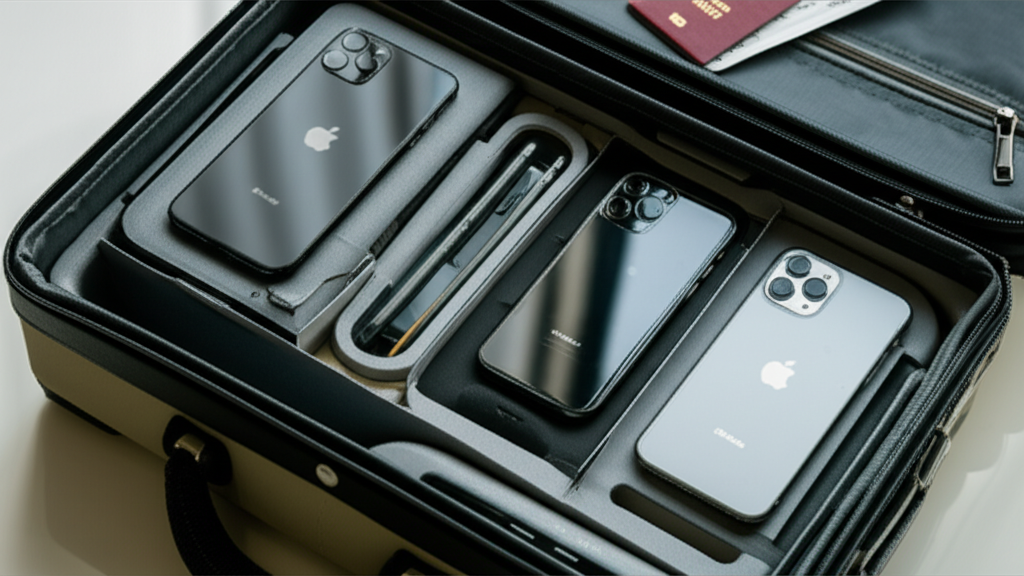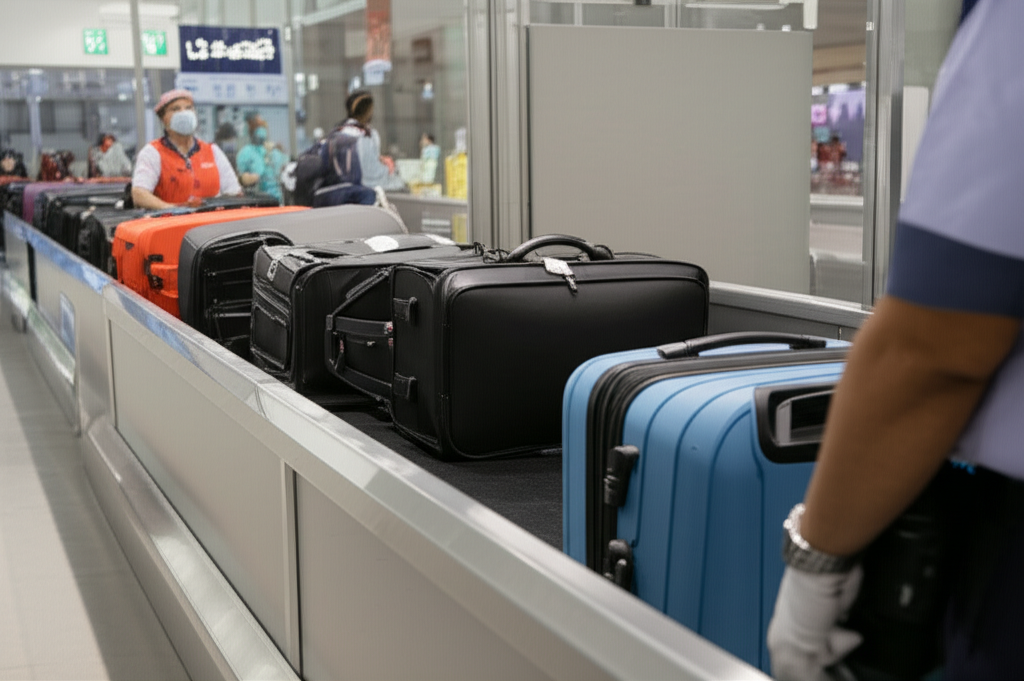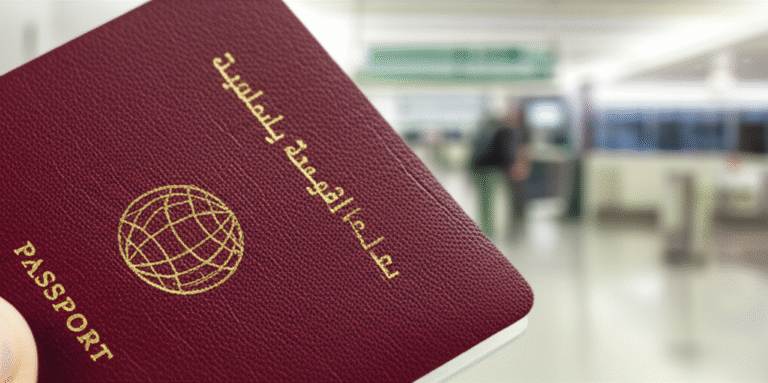How Many Phones Allowed Dubai India? Essential Guide
Generally, there’s no strict limit on the number of personal mobile phones you can carry from Dubai to India for personal use. However, it’s crucial to understand customs regulations regarding the value of electronics and any potential import duties, especially if you’re carrying multiple devices or high-value items.
Traveling between Dubai and India is a common journey for many, and with that comes questions about what you can bring back. One of the most frequent queries, especially in our tech-filled world, is about mobile phones: “How many phones are allowed from Dubai to India?” It’s a question that pops up because we often want to bring back a new gadget for ourselves or a gift for a loved one. While the thought of customs regulations can sometimes feel a little daunting, especially if you’re new to international travel or electronics, don’t worry! It’s usually quite straightforward, and this guide is here to help you navigate it with confidence. We’ll break down what you need to know so you can travel smoothly.
Understanding Mobile Phone Regulations for Travel

When you’re planning a trip from Dubai to India, especially concerning electronics like mobile phones, it’s helpful to understand the general principles of customs regulations. These rules are in place to manage the import and export of goods, ensuring fair trade and preventing issues like smuggling. For personal use items, the regulations are generally more relaxed than for commercial quantities. The key factors usually revolve around the value of the items and whether they are intended for personal use or resale.
For mobile phones specifically, the Indian customs authorities have guidelines that focus on the monetary value of the devices being brought into the country. This is primarily to determine if any import duties or taxes are applicable. For individuals traveling with their personal phones, or even bringing back a new one for personal use, the allowances are typically quite generous. However, it’s always wise to be informed to avoid any unexpected surcharges or complications at the airport.
Personal Use vs. Commercial Import: The Key Distinction

The most significant factor in determining how many phones you can bring is whether they are considered for “personal use” or for “commercial import.”
- Personal Use: This typically refers to mobile phones that you are taking with you for your own use during your trip, or bringing back as a gift for a family member or friend. This could also include a new phone you purchased for yourself to replace an old one. Indian customs generally allows individuals to carry a reasonable number of personal items, including a couple of mobile phones, without significant issues, as long as they fall within the duty-free allowances or are declared appropriately.
- Commercial Import: This refers to bringing in a large quantity of phones with the intention of selling them in India. If you are carrying multiple phones that appear to be factory-sealed, or a number that far exceeds what a typical individual would use or gift, customs officials may classify them as commercial imports. In such cases, you would be subject to much stricter regulations, including import licenses, higher duties, and potentially other legal requirements.
For the average traveler, the focus is on personal use. This means carrying one or two phones for yourself, and perhaps a new one as a gift, should generally be fine.
Indian Customs Baggage Rules: What You Need to Know
India has specific baggage rules that apply to travelers arriving from abroad. These rules outline what can be brought into the country duty-free and what items are subject to import duties and taxes. When it comes to electronics like mobile phones, the value is a crucial determinant.
The Directorate of Revenue Intelligence (DRI) and the India Customs website provide detailed information on these rules. It’s always a good idea to consult these official sources for the most up-to-date regulations, as they can sometimes change.
Here’s a simplified breakdown of what typically applies to mobile phones:
Duty-Free Allowance for Travelers
Indian citizens and residents returning to India, as well as foreign tourists, have a duty-free allowance for personal effects. This allowance is primarily for items like clothing, personal accessories, and consumables. However, when it comes to specific electronic items, there are often separate clauses.
For mobile phones, the allowance is generally tied to the value. While there isn’t a specific “number of phones” limit for personal use, the value of the phones you bring can trigger import duties.
Value Limits and Import Duties
The primary concern for bringing a mobile phone from Dubai to India usually revolves around its value. Indian Customs has set thresholds for the value of goods that can be brought in without attracting customs duty. If the value of the entire baggage (including any new electronics you’re bringing) exceeds the duty-free allowance, you will have to pay customs duty on the amount exceeding the limit.
As of recent regulations, generally:
- One mobile phone is usually considered a personal item and is often not subject to duty, even if new, provided it’s for personal use and its value is not exceptionally high.
- A second mobile phone might also be allowed for personal use, or as a gift, often without duty, depending on its value and whether it’s declared.
- Subsequent mobile phones, or those with very high values, are more likely to attract customs duty.
The exact duty-free allowance for Indian residents returning from abroad is typically INR 50,000 (approximately AED 2,200 or USD 600) for travelers coming from certain countries, and INR 100,000 (approximately AED 4,400 or USD 1,200) for those coming from specific regions like Europe. Foreign tourists have a higher allowance. However, these are for the total value of goods. If you buy a new phone in Dubai, its value will be added to the total value of your other purchases and belongings.
Important Note: The value of the mobile phone itself is a key factor. If a new phone you’re bringing back costs more than the permissible duty-free limit for electronics or personal effects, you may have to pay duty on the excess amount. The customs duty rate for mobile phones can vary but is typically around 20-25% of the assessed value, plus other applicable taxes.
Official Information Sources
For the most accurate and current information, always refer to official sources:
- India Customs: The official website of India Customs provides comprehensive details on baggage rules, duty-free allowances, and prohibited items. You can find it typically under the Central Board of Indirect Taxes and Customs (CBIC) portal. Central Board of Indirect Taxes and Customs (CBIC)
- Directorate of Revenue Intelligence (DRI): The DRI is the apex agency responsible for intelligence and anti-smuggling activities. Their insights are crucial for understanding customs regulations.
What to Do If You’re Bringing More Than One Phone
If you’re planning to bring more than one mobile phone from Dubai to India, especially if they are new or high-value, it’s wise to be prepared. Here’s a step-by-step approach:
- Assess the Value: Determine the current market value (purchase price) of each mobile phone you intend to bring. Keep receipts if you’ve purchased them recently.
- Check Your Allowance: Understand the duty-free baggage allowance for your traveler status (Indian resident returning, foreign tourist, etc.) and your country of origin/transit.
- Declare if Necessary: If the total value of your baggage, including the phones, exceeds your duty-free allowance, you must declare the items to customs upon arrival. This is crucial to avoid penalties and confiscation.
- Be Prepared for Duties: If your items are found to be above the duty-free limit and you haven’t declared them, you might face penalties. If you declare them, you’ll be asked to pay the applicable customs duty on the excess value.
- Keep Phones Separate: It can be helpful to keep your personal, used phone in your hand luggage or pocket, and any new phones you intend to declare in your checked baggage. This can help customs officials distinguish between used personal items and new goods for import.
Example Scenario:
Let’s say you are an Indian resident returning from Dubai. Your duty-free allowance is INR 50,000. You are carrying:
- Your current used phone (value negligible for customs purposes as it’s personal and used)
- A brand new iPhone 15 Pro (valued at INR 1,30,000)
- A new Samsung Galaxy S24 (valued at INR 80,000)
In this case, the total value of the new phones is INR 2,10,000. This significantly exceeds your INR 50,000 allowance. You would need to declare these phones and pay customs duty on the amount exceeding INR 50,000 (i.e., INR 1,60,000). The duty would be calculated on this excess amount.
Tips for Smooth Travel
To ensure your journey from Dubai to India is as smooth as possible, keep these tips in mind:
- Carry Proof of Purchase: If you buy a new phone in Dubai, keep the original invoice or receipt. This will help customs officials verify the value of the device.
- Keep Phones Unboxed (Optional but Recommended): For a single new phone intended as a gift or for personal use, you might consider keeping it unboxed if it’s within reasonable limits. However, if you are bringing multiple phones, it’s better to have them boxed with proof of purchase for declaration.
- Understand the ‘Used’ vs. ‘New’ Distinction: Customs officials can often identify if a phone is genuinely used and personal or if it’s a brand-new item intended for import. Your old, well-used phone is generally not an issue.
- Be Honest and Transparent: The best approach is always to be upfront with customs officials. If you have items that might exceed allowances, declare them. Honesty can prevent potential fines and legal issues.
- Check Airline Policies: While customs rules are set by the government, airlines might have specific policies about carrying electronic devices, especially regarding batteries. It’s good practice to check with your airline as well.
What Items Are Generally Prohibited or Restricted?
While mobile phones are generally allowed, it’s helpful to be aware of other items that might be restricted or prohibited when traveling to India:
- Certain types of firearms and ammunition
- Narcotics and illegal drugs
- Endangered species and products made from them
- Counterfeit currency and goods
- Certain publications or articles deemed objectionable
- Large quantities of gold or silver (above personal use limits without declaration)
This is not an exhaustive list, and it’s always best to check the official India Customs website for any updates on prohibited or restricted items.
What About Bringing Phones from India to Dubai?
The question often goes both ways! If you’re traveling from India to Dubai, the UAE also has its customs regulations. Generally, the UAE is quite welcoming to tourists and travelers. Similar to India, the focus is on personal use items. You can typically bring personal mobile phones without issues. For new phones being brought into the UAE, there are also value limits, and exceeding these might attract import duties. Dubai Customs has specific guidelines, but for a couple of personal phones, it’s usually straightforward.
The UAE Customs website is the best source for the latest information regarding importing goods into the UAE.
Frequently Asked Questions (FAQ)
Q1: Can I bring two new mobile phones from Dubai to India if they are gifts?
A1: You can, but it depends on their value. If the combined value of the two phones, plus any other items you are bringing, exceeds your personal duty-free allowance, you will have to pay customs duty on the excess amount. It’s best to declare them if you suspect you might go over the limit.
Q2: Do I need to declare my old, used phone when traveling from Dubai to India?
A2: No, your personal, used mobile phone is typically considered a personal effect and does not need to be declared unless it’s an extremely high-value vintage item being brought in for collection. Customs is primarily concerned with new goods and their values.
Q3: What happens if I don’t declare a new phone that is over the duty-free limit?
A3: If you are caught not declaring items that exceed the duty-free allowance, you could face penalties, fines, and confiscation of the goods. It’s always safer and more straightforward to declare them.
Q4: Are there any restrictions on the brand or model of phones I can bring?
A4: Generally, no. As long as the phones are for personal use and you comply with value-based duty regulations, the brand or model doesn’t matter. However, very advanced communication devices or those with specific functionalities might be subject to scrutiny, though this is rare for standard smartphones.
Q5: How much customs duty will I have to pay on a new phone from Dubai?
A5: The duty is calculated on the value of the phone that exceeds your duty-free allowance. The standard customs duty rate on electronics in India can range, but typically it’s around 20-25%, plus applicable taxes like Integrated Goods and Services Tax (IGST). The exact rate can be confirmed on the India Customs website.
Q6: Can I bring a phone purchased in Dubai for use in India without any problems?
A6: Yes, you can bring a phone purchased in Dubai for use in India. The main consideration is its value relative to your duty-free allowance. For one personal phone, it’s usually not an issue. For multiple or very expensive phones, be prepared to declare and potentially pay duties.
Final Thoughts for a Hassle-Free Trip
Navigating customs regulations for mobile phones when traveling from Dubai to India doesn’t have to be a complex affair. The key takeaway is to understand the difference between personal use and commercial import, and to be mindful of the monetary value of any new devices you bring. For most travelers carrying one or two phones for personal use or as gifts, the process is usually straightforward, especially if their value falls within reasonable limits or your declared allowance.
Always remember to check the official India Customs website for the most current regulations before you travel. Being informed and transparent with customs officials is your best bet for a smooth and stress-free journey. Happy travels!

